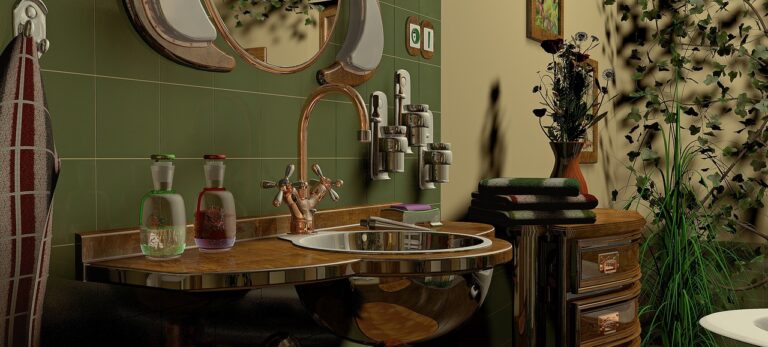The Role of Home Energy Audits in Efficiency
11xplay sign up, king567 create account, skyinplay agent login: Home energy audits play a crucial role in improving the efficiency of your home and reducing energy costs. By conducting a thorough assessment of your home’s energy usage, you can identify areas where improvements can be made to increase energy efficiency and reduce wastage. In this article, we will explore the importance of home energy audits and how they can help you save money while also reducing your environmental impact.
Why Should You Conduct a Home Energy Audit?
There are several compelling reasons to conduct a home energy audit. Firstly, it allows you to identify areas in your home where energy is being wasted. This could be due to poor insulation, outdated appliances, or inefficient heating and cooling systems. By addressing these issues, you can significantly reduce your energy consumption and lower your utility bills.
Secondly, a home energy audit can help you uncover potential health and safety hazards in your home. For example, poor ventilation or improper combustion of gas appliances can lead to indoor air quality issues or even carbon monoxide poisoning. By identifying and addressing these issues, you can create a healthier and safer living environment for you and your family.
Finally, conducting a home energy audit can increase the overall comfort of your home. By improving insulation, sealing air leaks, and upgrading to more energy-efficient appliances, you can create a more comfortable living space with consistent temperatures throughout the year.
How Does a Home Energy Audit Work?
During a home energy audit, a trained professional will visit your home to assess its energy usage. This typically involves a thorough inspection of your heating and cooling systems, insulation levels, appliances, lighting, and overall energy usage patterns. The auditor may also use specialized equipment such as a blower door test to measure air leakage and infrared cameras to detect areas of heat loss.
Based on the findings of the audit, the auditor will provide you with a detailed report outlining areas where energy improvements can be made. This may include recommendations for upgrading to more energy-efficient appliances, improving insulation levels, sealing air leaks, or making behavioral changes to reduce energy consumption.
Once you have received the audit report, you can prioritize the recommended improvements based on your budget and energy savings goals. Many utility companies offer incentives or rebates for energy-efficient upgrades, making it even more affordable to make the recommended improvements.
The Benefits of a Home Energy Audit
There are numerous benefits to conducting a home energy audit. Some of the key advantages include:
1. Cost Savings: By improving your home’s energy efficiency, you can significantly reduce your utility bills. The upfront cost of making energy-efficient upgrades is often recouped through lower energy costs in a relatively short period.
2. Environmental Impact: By reducing your energy consumption, you can lower your carbon footprint and help protect the environment. Energy-efficient homes produce fewer greenhouse gas emissions, which can contribute to a more sustainable future.
3. Increased Comfort: Energy-efficient upgrades can improve the overall comfort of your home by creating a more consistent indoor temperature and reducing drafts and hot/cold spots.
4. Health and Safety: By addressing issues such as poor indoor air quality or improper ventilation, you can create a healthier living environment for you and your family.
5. Home Value: Energy-efficient homes are more attractive to potential buyers and can command a higher resale value. Investing in energy-efficient upgrades can therefore increase the value of your home in the long run.
FAQs
Q: How much does a home energy audit cost?
A: The cost of a home energy audit can vary depending on the size of your home and the level of detail required. However, many utility companies offer discounted or free energy audits as part of their energy efficiency programs.
Q: How long does a home energy audit take?
A: A typical home energy audit can take anywhere from 1-3 hours, depending on the size and complexity of your home. The auditor will need access to all areas of your home, including the attic, basement, and crawl spaces.
Q: What is the payback period for energy-efficient upgrades?
A: The payback period for energy-efficient upgrades can vary depending on the cost of the upgrades, your energy savings goals, and the current energy prices. In many cases, the payback period is relatively short, making energy-efficient upgrades a worthwhile investment.
Q: Can I conduct a DIY home energy audit?
A: While it is possible to conduct a basic DIY home energy audit, it is recommended to hire a professional auditor for a more thorough assessment. A professional auditor has the experience and specialized equipment needed to identify energy efficiency opportunities accurately.
In conclusion, home energy audits are a valuable tool for improving the efficiency of your home and reducing energy costs. By identifying areas of energy wastage and making recommended upgrades, you can create a more comfortable, healthy, and cost-effective living environment while also reducing your environmental impact. Conducting a home energy audit is a smart investment that can pay off in numerous ways in the long run.







